Garden Fencing in Gardener London
Enhance Your Outdoor Space with Quality Garden Fencing
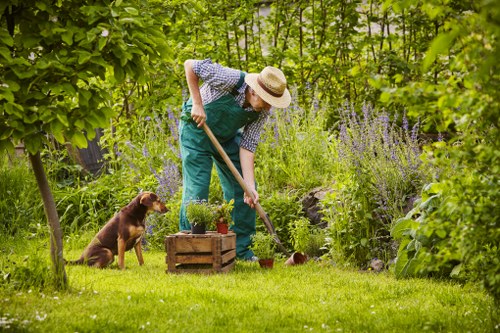
Creating a beautiful and functional garden space in London starts with selecting the right garden fencing. Whether you're looking to add privacy, security, or aesthetic appeal to your garden, the right fence can make all the difference. In Gardener London, a variety of fencing options cater to diverse tastes and requirements, ensuring that every garden can achieve its full potential.
Choosing the perfect fence involves considering various factors such as material, design, and purpose. From traditional wooden fences to modern metal designs, each type offers unique benefits that can complement your garden's style. Additionally, the quality of fencing not only enhances the beauty of your outdoor space but also contributes to its longevity and resilience against the elements.
Investing in garden fencing is more than just a decorative choice; it’s a practical decision that can increase your property’s value and provide a safe environment for your family and pets. In this article, we will explore the different types of garden fencing available in Gardener London, their benefits, and tips for choosing and maintaining the perfect fence for your garden.
Types of Garden Fencing Available
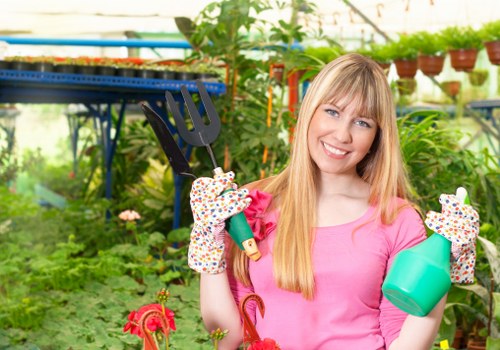
1. Wooden Fences
Wooden fences are a timeless choice that offers natural beauty and versatility. They can be customized in various styles, such as picket, lattice, or privacy panels, to match the design of your garden. Wood is a renewable resource, making it an environmentally friendly option when sourced responsibly.
One of the main advantages of wooden fences is their ability to be painted or stained in any color, allowing homeowners to personalize their garden’s appearance. Additionally, wooden fences can be easily modified or repaired, providing flexibility for future changes or enhancements.
However, wooden fences require regular maintenance to protect against weathering, rot, and pests. Treatments such as staining or sealing can extend the lifespan of the fence and keep it looking fresh and vibrant throughout the seasons.
2. Metal Fences
Metal fences, including wrought iron and aluminum options, offer durability and a sleek, modern look. They are resistant to weathering and require minimal maintenance compared to wooden fences. Metal fences are an excellent choice for homeowners seeking long-lasting protection and a sophisticated aesthetic.
Wrought iron fences are renowned for their strength and intricate designs, making them a popular choice for those who want to add a touch of elegance to their garden. Aluminum fences, on the other hand, provide similar benefits with a lighter weight and often lower cost.
Metal fences are also highly customizable, with various styles and finishes available to suit different garden themes. Additionally, metal fences can be combined with other materials, such as wood or glass, to create unique and stylish fencing solutions.
3. Vinyl Fences
Vinyl fences are a low-maintenance alternative to traditional fencing materials. Made from durable PVC, vinyl fences resist fading, cracking, and warping, ensuring they remain intact and attractive for years. They are also easy to clean, requiring only occasional washing with soap and water.
Vinyl fences are available in a variety of styles and colors, allowing for easy integration with different garden designs. They are also lightweight and easy to install, making them a popular choice for DIY enthusiasts.
Another significant advantage of vinyl fencing is its resistance to pests such as termites, which can damage wooden fences. This makes vinyl an excellent option for gardens in areas prone to pest infestations.
4. Composite Fences
Composite fences combine the best features of wood and vinyl, offering both natural aesthetics and durability. Made from a blend of wood fibers and plastic, composite fences are resistant to rot, insects, and fading, requiring minimal maintenance.
The appearance of composite fences closely resembles that of natural wood, providing a warm and inviting look without the associated upkeep. They are available in various finishes and styles, allowing homeowners to achieve the desired look for their garden.
While composite fences may have a higher initial cost compared to some other materials, their longevity and low maintenance requirements can make them a cost-effective investment in the long run.
Benefits of Having a Garden Fence
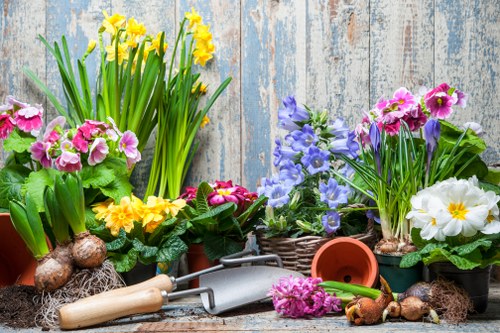
1. Privacy
A garden fence provides much-needed privacy, allowing you to enjoy your outdoor space without the intrusion of neighbors or passersby. Whether you desire a secluded retreat or a safe area for children and pets to play, a fence can create the necessary boundaries to enhance your garden’s functionality and comfort.
Privacy fences are typically taller and solid, blocking views from the outside and creating an enclosed environment. This makes them ideal for those who value their personal space and seek a peaceful haven in their backyard.
In addition to privacy, fences can also serve as a sound barrier, reducing noise pollution from busy streets or neighboring properties. This contributes to a more serene and relaxing garden atmosphere.
2. Security
Security is another crucial benefit of installing a garden fence. A strong and well-constructed fence acts as a deterrent to potential intruders, safeguarding your property and belongings. Fences with higher visibility and sturdy materials like metal or composite can significantly enhance your garden’s security.
Beyond deterring burglars, fences also provide a safe boundary for pets, preventing them from wandering off and protecting them from potential dangers. This added layer of security ensures peace of mind for homeowners, knowing that their loved ones are safe and secure within the garden’s confines.
Additionally, security fences can help keep out wildlife and pests, maintaining the cleanliness and health of your garden by preventing unwanted intrusions.
3. Aesthetic Enhancement
A well-designed fence can significantly enhance the visual appeal of your garden. It serves as a focal point that ties together various elements of your outdoor space, from plants and pathways to seating areas and decorative features.
With a wide range of materials, styles, and colors available, you can choose a fence that complements your garden’s theme, whether it’s modern, traditional, rustic, or minimalist. This allows you to create a cohesive and harmonious look that reflects your personal taste and enhances the overall beauty of your home’s exterior.
Furthermore, decorative fencing elements such as carvings, patterns, or integrated lighting can add unique character and charm to your garden, making it a more inviting and enjoyable space.
4. Property Value Increase
Investing in quality garden fencing can also increase your property’s value. Potential buyers often view well-maintained gardens as a significant selling point, and a beautiful fence can make your home more attractive in the real estate market.
High-quality fences not only enhance the curb appeal of your property but also signify that the home is well cared for, contributing to a positive first impression. This can lead to higher property valuations and a quicker sale when you decide to put your home on the market.
Moreover, functional fencing solutions that offer privacy and security can appeal to a broader range of buyers, making your property more desirable and competitive.
Choosing the Right Fence for Your Garden
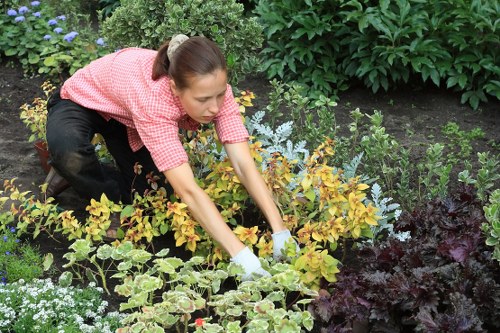
1. Considering Climate and Weather
London’s climate, characterized by its variable weather patterns, requires fencing materials that can withstand rain, wind, and occasional frost. When selecting a fence, it's essential to consider the durability of the material against these elements to ensure longevity and minimal maintenance.
For instance, metal fences are highly resistant to weather changes, while wooden fences may require regular treatment to prevent rot and decay. Vinyl and composite fences also offer excellent weather resistance, making them suitable for the London climate.
Additionally, consider the direction of prevailing winds and potential exposure to harsh weather when choosing the height and sturdiness of your fence. Properly installed and weather-resistant fencing will continue to protect and beautify your garden year after year.
2. Material Durability
The durability of your garden fence is a crucial factor in its effectiveness and longevity. High-quality materials ensure that your fence can withstand daily wear and tear, maintaining its appearance and functionality over time.
Metal fences are known for their strength and resilience, while vinyl fences offer excellent resistance to fading and cracking. Wooden fences, when properly maintained, can also provide long-lasting beauty and stability.
Assessing the durability of different fencing materials helps you make an informed decision that aligns with your budget and maintenance preferences. Investing in a durable fence reduces the need for frequent repairs or replacements, providing better value in the long term.
3. Style and Design Preferences
Your garden fence should reflect your personal style and complement the overall design of your outdoor space. Whether you prefer a classic, rustic look or a sleek, modern appearance, there are fencing options available to suit your taste.
Consider the architectural style of your home and the existing garden features when selecting a fence design. For example, a traditional wooden picket fence may enhance a country-style garden, while a minimalist metal fence might better suit a contemporary landscape.
Incorporating design elements such as decorative patterns, color accents, or integrated lighting can further personalize your fence, making it a unique and integral part of your garden's aesthetic.
4. Budget Considerations
Budget is a significant factor when choosing a garden fence, as costs can vary widely based on material, design, and installation requirements. It's essential to establish a budget that aligns with your financial constraints while still meeting your fencing needs.
Wooden fences tend to be more affordable initially but may incur higher maintenance costs over time. Metal and composite fences typically have higher upfront costs but offer greater durability and lower maintenance expenses.
Additionally, consider any additional costs associated with installation, permits, or customization when budgeting for your fence. Balancing quality and cost ensures that you select a fencing solution that provides excellent value and meets your garden’s requirements.
Installation Process
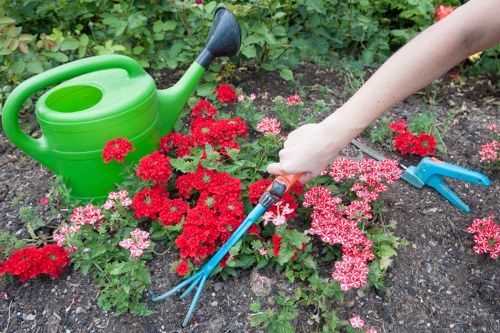
1. Professional Installation vs DIY
Deciding between professional installation and a DIY approach depends on your skill level, budget, and the complexity of the project. Professional installers offer expertise and efficiency, ensuring that your fence is installed correctly and securely.
On the other hand, DIY installation can be more cost-effective and allows for greater control over the process. However, it requires time, effort, and the right tools to achieve a high-quality result.
Ultimately, the choice between professional and DIY installation should be based on your comfort level with the installation process and the specific requirements of your fencing project.
2. Steps Involved in Fence Installation
Installing a garden fence involves several key steps to ensure proper placement and stability. These typically include:
- Planning and Measurement: Assessing your garden's layout, measuring the area, and deciding on the fence's dimensions and style.
- Permitting: Checking local regulations and obtaining any necessary permits for fence installation in London.
- Material Preparation: Gathering all necessary materials, including posts, panels, fasteners, and tools.
- Post Installation: Digging holes and securely setting fence posts to provide a stable foundation.
- Panel Attachment: Attaching fence panels or rails to the posts, ensuring alignment and levelness.
- Finishing Touches: Adding gates, decorative elements, or protective coatings as needed.
Following these steps carefully ensures a sturdy and aesthetically pleasing fence that serves its intended purpose effectively.
3. Permits and Regulations in London
When installing a garden fence in London, it's important to be aware of local regulations and zoning laws. These rules can dictate aspects such as fence height, proximity to property lines, and materials used, ensuring that fences are in harmony with the surrounding environment and community standards.
Obtaining the necessary permits before commencing installation helps avoid potential legal issues and fines. It's advisable to consult with local authorities or a professional installer who is familiar with London’s specific fencing regulations to ensure compliance.
Additionally, respecting neighbor boundaries and engaging in open communication can help maintain good relations and prevent disputes related to fencing disputes.
Maintenance Tips for Your Garden Fence
Proper maintenance is essential to preserve the integrity and appearance of your garden fence. Regular upkeep not only extends the lifespan of the fence but also ensures that it continues to provide its intended benefits effectively.
Here are some maintenance tips for different types of fences:
- Wooden Fences: Apply protective coatings like stain or sealant annually to prevent rot, warping, and insect damage. Inspect for loose boards or nails and repair as necessary.
- Metal Fences: Clean regularly to remove dirt and debris. Inspect for rust or corrosion and treat affected areas promptly. Consider painting metal fences with weather-resistant paint for added protection.
- Vinyl Fences: Wash with mild soap and water to remove stains and prevent discoloration. Check for cracks or damage and replace panels as needed.
- Composite Fences: Clean with a soft brush and mild detergent. Avoid using abrasive cleaners that can damage the surface. Inspect for any signs of wear and repair as necessary.
Routine inspections and timely maintenance help ensure that your fence remains functional and visually appealing for years to come.
Popular Fencing Trends in London Gardens
1. Sustainable and Eco-Friendly Materials
With increasing awareness of environmental sustainability, many homeowners in London are opting for fences made from eco-friendly materials. Bamboo, recycled composites, and sustainably sourced wood are popular choices that reduce environmental impact while providing stylish fencing solutions.
These materials not only promote sustainability but also offer unique textures and aesthetics that enhance the natural beauty of gardens. Additionally, eco-friendly fencing options often come with the added benefit of durability and low maintenance, making them an attractive choice for environmentally conscious homeowners.
Embracing sustainable materials reflects a commitment to preserving the environment and contributes to a healthier, greener community.
2. Modern Minimalist Designs
Modern minimalist fencing designs are gaining popularity in London gardens, characterized by clean lines, simple shapes, and neutral colors. These designs create a sleek and sophisticated look that complements contemporary garden themes and architecture.
Minimalist fences often feature materials like metal or composite with understated finishes, emphasizing functionality and elegance without excessive ornamentation. This approach allows the natural elements of the garden, such as plants and water features, to take center stage.
The simplicity of minimalist designs also makes them versatile, easily blending with various garden styles and enabling easy integration with other outdoor elements.
3. Integrated Lighting Solutions
Incorporating lighting into garden fencing is a popular trend that enhances both the functionality and aesthetics of outdoor spaces. Integrated lighting solutions, such as LED strips or solar-powered fixtures, can illuminate the fence, creating a warm and inviting atmosphere during the evening hours.
Lighting can highlight architectural features of the fence, add depth and dimension to the garden, and improve safety by providing visibility along pathways and entrances. Additionally, strategically placed lights can accentuate landscaping elements, making the garden more visually appealing after dark.
Modern lighting technology offers energy-efficient options that are environmentally friendly and cost-effective, making integrated lighting a practical and stylish addition to any garden fence.
Cost Considerations
The cost of garden fencing in Gardener London can vary significantly based on factors such as material, length, design complexity, and installation method. Understanding these cost drivers helps homeowners budget effectively and choose a fencing solution that aligns with their financial constraints.
Here is a general overview of costs associated with different fencing materials:
- Wooden Fences: Typically range from £30 to £80 per meter, depending on the type of wood and design. Additional costs may include staining, sealing, and maintenance over time.
- Metal Fences: Costs vary widely based on the type of metal and design intricacy. Wrought iron fences can range from £60 to £150 per meter, while aluminum options may be slightly more affordable.
- Vinyl Fences: Generally priced between £40 and £100 per meter, vinyl fences offer a balance of affordability and durability with lower maintenance costs.
- Composite Fences: Composite materials are usually more expensive, ranging from £50 to £120 per meter, but offer enhanced durability and lower long-term maintenance expenses.
Additionally, installation costs can add to the overall expense, especially for professional services. It’s important to obtain multiple quotes and consider both material and labor costs when planning your garden fencing project.
By carefully evaluating costs and benefits, homeowners can make informed decisions that provide the best value and meet their garden's fencing needs effectively.
Conclusion
Investing in quality garden fencing in Gardener London is a strategic decision that enhances the beauty, functionality, and security of your outdoor space. With a wide array of fencing materials and styles available, homeowners can find the perfect solution to complement their garden's design and meet their specific needs.
Whether you prioritize privacy, security, aesthetic appeal, or increasing your property's value, the right fence can significantly contribute to the overall enjoyment and effectiveness of your garden. By considering factors such as material durability, design preferences, climate, and budget, you can make an informed choice that ensures your fence remains a valuable asset for years to come.
Don't wait to transform your garden into a stunning and secure haven. Contact us today to explore the best garden fencing options available in Gardener London and take the first step towards creating your perfect outdoor sanctuary.
Get Started with Your Garden Fencing Project
Ready to enhance your garden with a beautiful and functional fence? Book your service now and let our experts help you choose and install the perfect fencing solution tailored to your needs and preferences. Experience the difference that quality fencing can make in your Gardener London garden today!